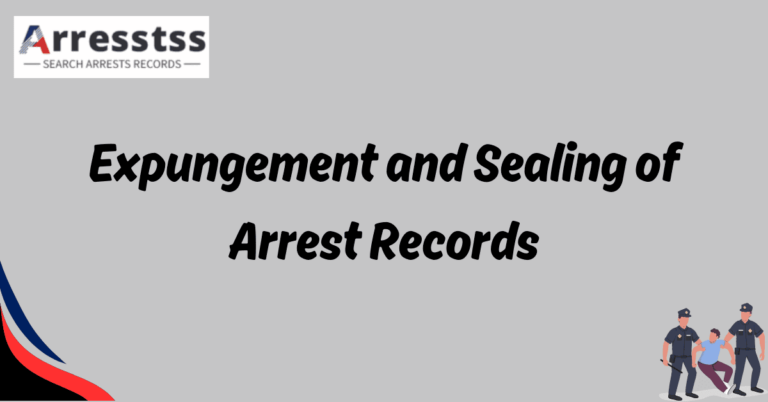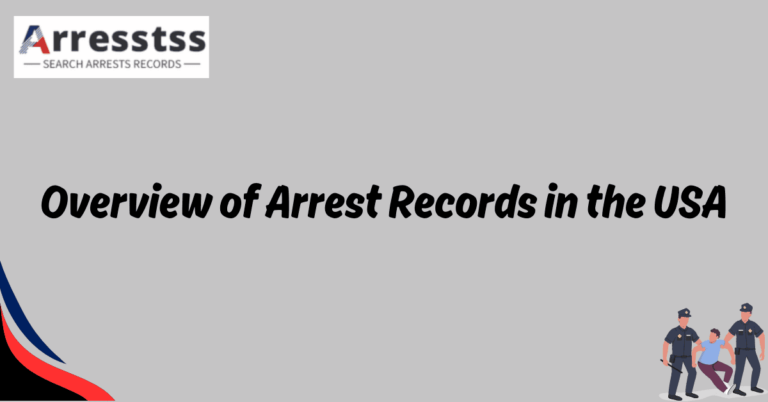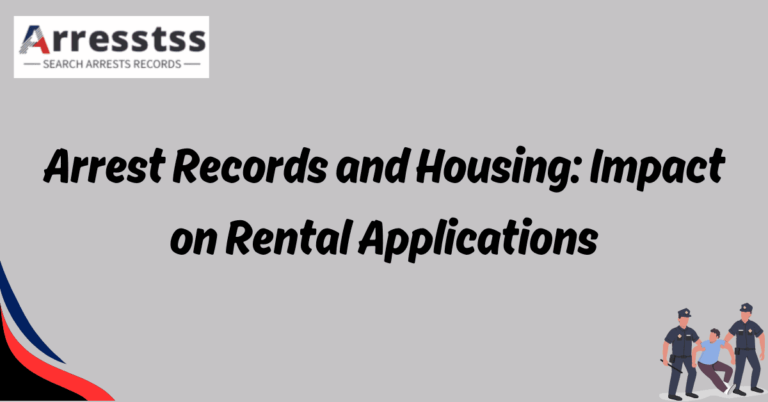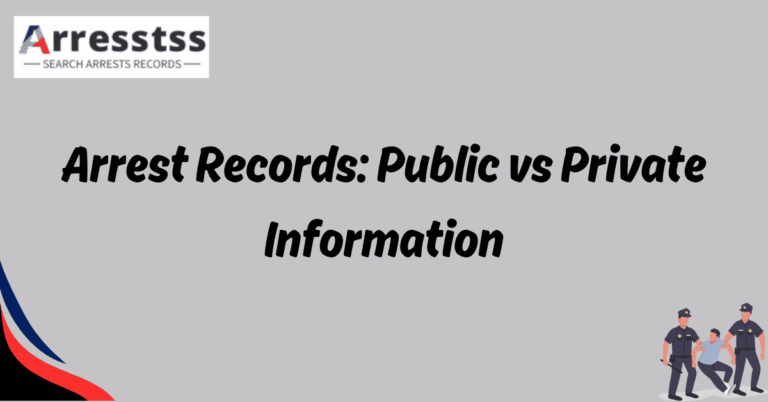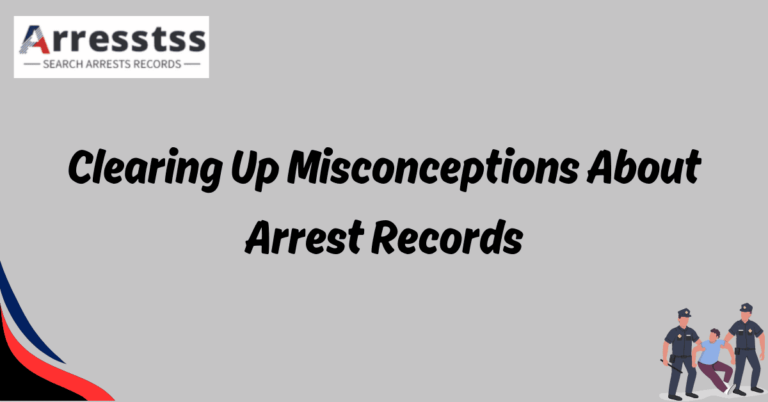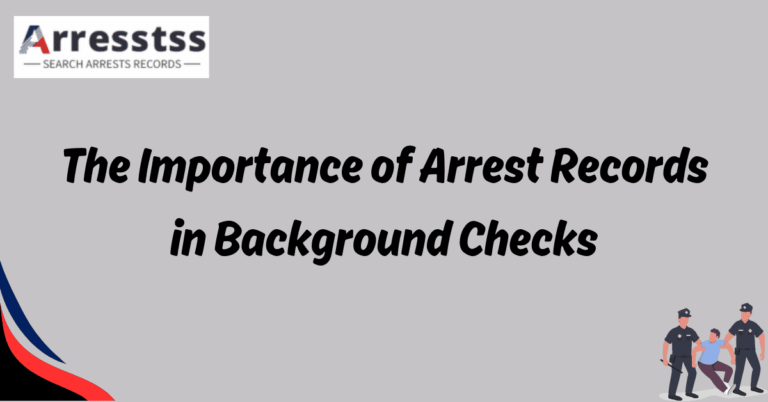Arrest Records and Employment: What You Need to Know
Impact of Arrest Records on Employment Opportunities
Arrest records can have a significant impact on employment opportunities. In today’s competitive job market, potential employers often conduct background checks to assess the suitability of candidates for certain positions. These background checks may include a review of an individual’s criminal history, which can encompass arrests and convictions.
Perceived Implications of Arrest Records
Job seekers need to understand how their arrest records can affect their employment prospects. Even if an arrest did not result in a conviction, it can still appear on a background check and raise concerns for employers. This is because employers may perceive arrests as indicators of potential risk or untrustworthiness.
When an employer sees an arrest record, they may worry about the possibility of the candidate engaging in illegal or unethical activities that could jeopardize the company’s reputation. This perception can make it challenging for job seekers with arrest records to secure employment.
Legal Considerations for Employers
While employers have the right to consider an individual’s arrest records, they must also adhere to certain regulations. In some cases, employers may not be able to consider arrests that did not result in convictions or arrests that are not relevant to the job requirements.
The Equal Employment Opportunity Commission (EEOC) provides guidelines that aim to prevent discrimination against job applicants with arrest records. These guidelines emphasize the importance of considering the nature and relevance of the offense, the time that has passed since the offense, and the individual’s rehabilitation efforts.
Importance of Knowing Your Rights
Job seekers with arrest records must be aware of their rights and understand the laws surrounding employment and arrest records. It is crucial to know what information employers can legally consider and what they cannot.
By understanding your rights, you can better advocate for yourself during the job application process. Knowing which arrests may not be relevant to a particular job can help you address potential concerns proactively and focus on your qualifications and potential contributions to the company.
Navigating the Complexities of Arrest Records and Employment
Navigating the intersection of arrest records and employment can be complex. Individuals with arrest records face unique challenges in their job search, but being informed and proactive can help overcome these obstacles.
This informational guide aims to provide you with the necessary knowledge and insights to understand the implications of your arrest records on your job prospects. By being aware of the potential impact of arrest records, understanding your rights, and knowing how employers legally consider this information, you can better position yourself for success in your career endeavors.
Stay tuned for the upcoming sections, where we will delve deeper into specific strategies and resources to help you navigate the complexities of arrest records and employment.
FAQ’s
Arrest records can have a significant impact on employment opportunities. Most potential employers conduct background checks as part of their hiring process to assess the suitability of candidates for certain positions. These background checks often include a review of an individual’s criminal history, which can encompass arrests and convictions.
Employers may view arrest records as indicators of potential risk or untrustworthiness, even if the arrest did not result in a conviction. This can raise concerns and affect the job seeker’s chances of securing employment.
Job seekers need to be aware that employers must adhere to certain regulations when considering arrest records. In some cases, employers may not be able to consider arrests that did not result in convictions or arrests that are not relevant to the job requirements. This means that certain arrests may not hurt employment prospects.
Understanding how arrest records can impact employment opportunities is essential for job seekers. By being aware of these implications, individuals can take proactive steps to mitigate any negative effects and better position themselves for success in their career endeavors.
What if my arrest did not result in a conviction?
Even if an arrest did not result in a conviction, it can still appear on a background check conducted by potential employers. This can raise concerns for employers, as they may perceive the arrest as a potential risk or indicator of untrustworthiness.
However, it is important to note that employers may not be able to consider arrests that did not result in convictions or arrests that are not relevant to the job requirements. This means that individuals with arrests that did not lead to convictions may still have employment opportunities, depending on the specific circumstances and regulations in place.
Job seekers should familiarize themselves with the laws and regulations surrounding employment and arrest records to better understand their rights and the potential impact of their arrest history on their job prospects.
What rights do job seekers have regarding arrest records?
Job seekers have rights when it comes to their arrest records and employment opportunities. Laws and regulations vary by jurisdiction, but in general, individuals have the right to privacy and protection from discrimination based on their arrest records.
Employers may be limited in their ability to consider arrests that did not result in convictions or arrests that are not relevant to the job requirements. This means that individuals with certain arrest records may still have the opportunity to secure employment, depending on the specific circumstances and regulations in place.
It is important for job seekers to be aware of their rights and to consult with an attorney or legal professional familiar with employment and arrest record laws to understand how these laws apply to their specific situations.
Navigating the intersection of arrest records and employment can be complex, but being informed and proactive can help job seekers better position themselves for success.
First and foremost, job seekers should familiarize themselves with the laws and regulations surrounding employment and arrest records in their jurisdiction. Understanding their rights and the potential impact of their arrest history on their job prospects is crucial.
Job seekers should also consider taking steps to mitigate any negative impact of their arrest records. This can include obtaining legal advice to determine if their arrest records can be expunged or sealed, which may help improve their employment opportunities.
Additionally, building a strong and positive employment history, acquiring relevant skills and qualifications, and networking can also help job seekers overcome potential barriers associated with their arrest records.
Addressing arrest records during the job application process can be a delicate matter. It is generally recommended to be honest and transparent about any arrest records if asked by potential employers.
However, job seekers should also be aware of their rights and the limitations employers have when considering arrest records. If an arrest did not result in a conviction or is not relevant to the job requirements, individuals may not be obligated to disclose such information.
Job seekers should carefully consider the specific circumstances and seek legal advice if unsure about how to address their arrest records during the job application process. Consulting with an attorney or legal professional familiar with employment and arrest record laws can guide the best approach.


